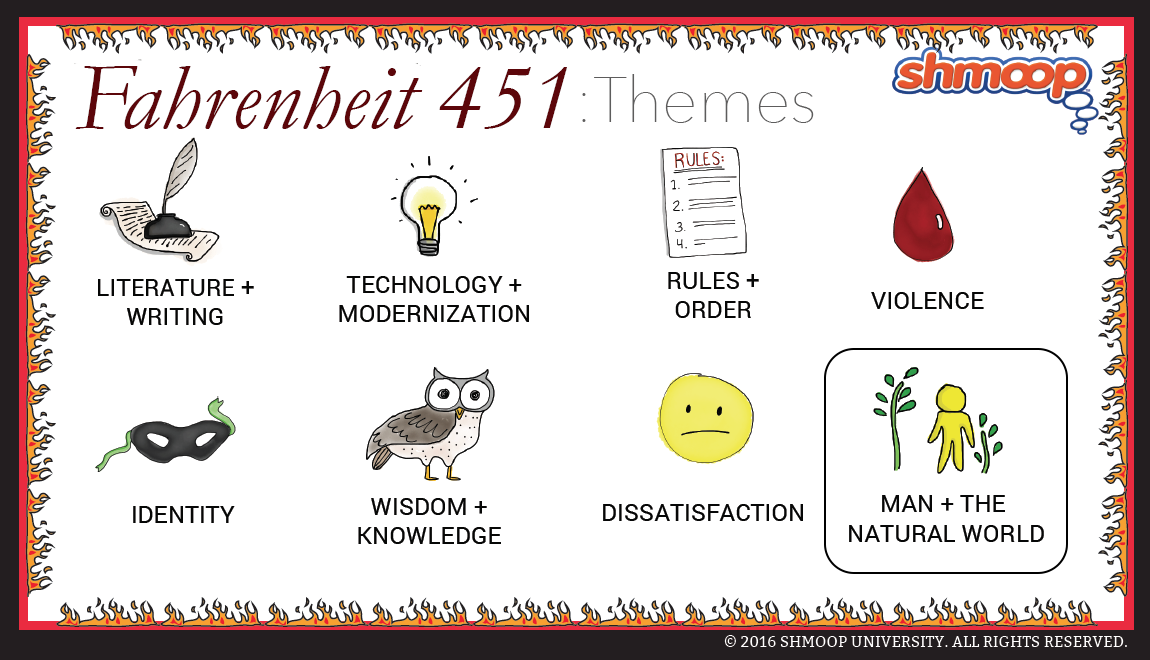 (Click the themes infographic to download.)
(Click the themes infographic to download.)
In Fahrenheit 451, readers get a front row seat to an epic battle between technology and nature. In one corner of the ring we have technology, which is cold and destructive. In the other corner we've got nature in all its engaging and inspiring glory.
We don't want to give too much away, but nature comes out pretty strong in the end. Remember—it is only in nature that Montag is able to think clearly and draw conclusions from his experiences.
The novel argues that nature—and all of life, for that matter—is a cycle of construction and destruction. This is the natural way of things, but technology has focused only on destruction and violence, leaving man in a devastated, unnatural state.
Technology might be a pretty strong contender in this fight, but its tendency toward self-destruction becomes its downfall. In the end, nature reigns supreme.
Questions About Man and the Natural World
- We argue that Fahrenheit 451 establishes a dichotomy between technology/control/ignorance and nature/rebellion/wisdom. What is it about trees and rivers that’s so conducive to learning?
- Is fire an element of nature or a weapon of man in this novel? Can it be both? Doesn’t that mess up the dichotomy we were just talking about?
- What does the Mechanical Hound have to do with this question of nature vs. technology?
Chew on This
Fahrenheit 451 is structurally cyclic to mirror the cyclical quality of the natural world.